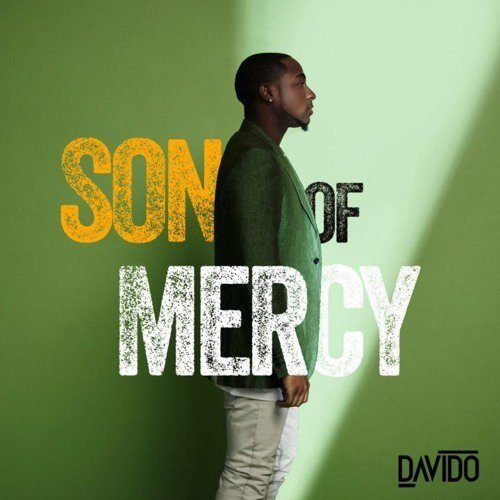Going from being a super-successful indie artist, where your ‘go’ is go and your ‘no’ is no, to signing with a major record label, where your ‘go’ could be turned to a wait and your ‘no’ into a maybe, must feel like running a profitable business all your life and then having to put that on hold in order to start a 9-to-5 in old age.
Davido’s first body of work in over 4 years, Son of Mercy, was pushed back by Sony, and there’s no doubt that that was disappointing to see, but the way the singer threw a hissy fit at his new employers last month, you would be forgiven if you’d thought the EP was delayed by 1 year, rather than by 1 month. You get the sense that a shared control of the vision for his music is something that OBO would need time to get accustomed to and based on some of the content on SOM, so would some of his older fans.
The 2 singles that ushered in Son of Mercy are “safe” records from a global marketing standpoint. With the success of Ayo Jay’s soca-inspired “Your Number” and with Wizkid helping to add to the dancehall feel of “One Dance”, it’s only logical that Caribbean music be viewed as the more familiar cousin that’ll help Nigerian music reach a broader audience. However, it’s important that those mergers don’t come off as being forced and inorganic – listeners are able to tell. Davido intros the aggressive “Gbagbe Oshi” with an awkward attempt at rapid-fire toasting, before going on to combine pidgin, Yoruba and patois with noticeable discomfort on one of the worst-written songs in the singer’s catalog.
Boy na tough, una dey distinguish /
I love my team like a satellite dish /
Except you’re a DStv installer, and that’s how you pay your bills, I can’t for the life of me understand why you would have any affection for satellite dishes. The record is saved by a grimy beat provided by long-term producer Shizzi.
Thankfully, the EP’s second single “How Long”, was much better thought through, so much so that it too ended up seeming somewhat formulaic. There are 2 co-sung love stories on SOM, of the two, Simi’s vocal performance on “Maga 2 Mugu” was the more complementary of Davido’s husky voice but also the lesser expected feature. The storyline goes – Davido has lost his mind over a young girl and doesn’t mind losing all his money, as well, in pursuit of her love or more specifically, her body. On the record, Simi brings calm and sappiness to Davido’s hyperactivity and directness, her inclusion has less to do with the singer’s reach as it does with what she brings to the table musically. Tinashe, on the other hand, is Davido’s label mate and just like him, is an African and an American, so you can see how her presence on “How Long” makes sense from a cross-marketing standpoint. It also works on a purely artistic level, the Spellz-produced Afropop/house hybrid is the shiny single that Sony probably hopes will cross over, while “Maga 2 Mugu” could become the radio joint that makes up for Davido’s noticeable absence from the local charts throughout 2016.
The one thing that is understated about Davido is his musical diversity. The singer describes his style as “Afro fusion”, which to me means Davido has given himself the creative license to be the African glue for all forms of music – indigenous and international. He trades barbs and bars with trapper Nasty C on the same project where he performs a contemporary highlife track reminiscent of the likes of Orlando Owoh. It’s a musical existence that Davido gets right more times than he gets wrong. On “Coolest Kid in Africa”, the former, he shows off, bragging about how saving money isn’t a word in his vocabulary. But it’s also clear that Davido stepped into Nasty C’s trap world and the Durban-bred MC doesn’t just show off, he also shows out –
If I throw a couple of G’s up, she’ll probably let my shadow f***.
On “Return”, the latter, Davido went alone. The song touches on love, a recurrent theme on SOM, but also positioned Davido nicely to have a new record to perform at all the owambe festivities in the so-called ‘Ember’ months .
So it’s finally here, the first fully body of work by the new crop of African artists that record labels are telling the world could become the future of music. If you listen to Davido’s new EP with that as your frame of reference, then it’s hard to see how SOM, with its 1,001 musical ingredients that make it sound undercooked sometimes and overcooked at others, moves that conversation forward. But if you see the EP for what it is or at least what it seems to be – a collection of strategically-placed songs that needed to be released when the spotlight was still on – then you’d be able to appreciate it as Davido’s demo CD to the world.
Download/listen to Davido’s EP “Son of Mercy” here


